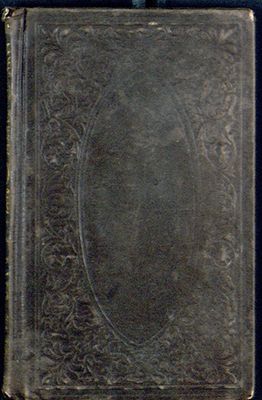
Title: History of Orrin Pierce
Author: American Sunday-School Union
Release date: January 13, 2014 [eBook #44658]
Most recently updated: October 23, 2024
Language: English
Credits: Produced by musicinme57, Demian Katz and the Online
Distributed Proofreading Team at http://www.pgdp.net (Images
courtesy of the Digital Library@Villanova University
(http://digital.library.villanova.edu/))

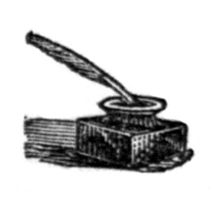
WRITTEN FOR THE AMERICAN SUNDAY-SCHOOL UNION, AND REVISED BY THE COMMITTEE OF PUBLICATION.
Philadelphia:
AMERICAN SUNDAY-SCHOOL UNION,
NO. 146 CHESTNUT STREET.
Entered according to act of Congress, in the year 1847, by The American Sunday-school Union, in the Clerk's Office of the District Court of the Eastern District of Pennsylvania.
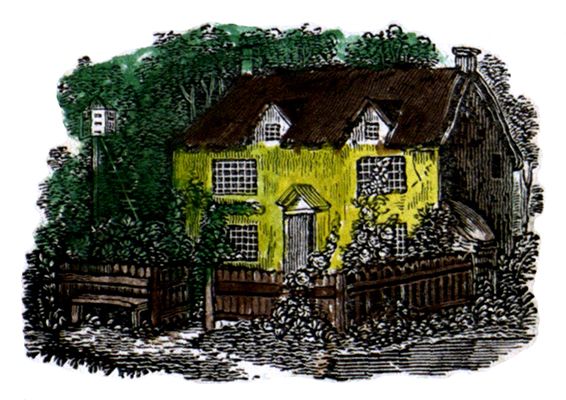
The cottage where Orrin Pierce was born stood by the side of a clear bright stream not far from the sea-shore. This cottage had a thatched roof, and was surrounded by a plain fence.
Orrin's mother was very fond of flowers, and the little yard in front of the cottage was filled with many beautiful plants and shrubs; some of them were trained up about the upper window and around the door. A marten's house stood on a post one side of the cottage, where three twittering birds built their nests in safety.
Everybody that passed Mrs. Pierce's house, looked at it with pleasure, and some even stopped to admire its neatness and comfortable appearance.
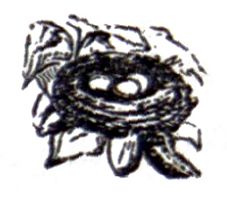
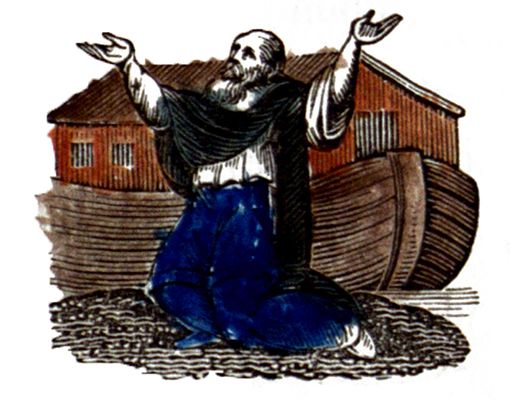
Noah.
Mrs. Pierce was an excellent woman; she feared God and instructed her little son out of the Scriptures. Before he was old enough to read, she used to read to him about the creation of the world; and before he was four years old, he could tell a great deal of Scripture history. He knew about the temptation and fall of man; the story of Noah; the deluge; the history of Joseph; the account of the Israelites in Egypt; the plagues sent upon Pharaoh; the departure of the children of Israel out of Egypt; their journey through the wilderness, and their entrance into the promised land. He also could relate the story of Daniel; of Israel, and many other accounts from the Bible.
Those who do not read the Bible are ignorant of some of the most interesting and important parts of the world's history.
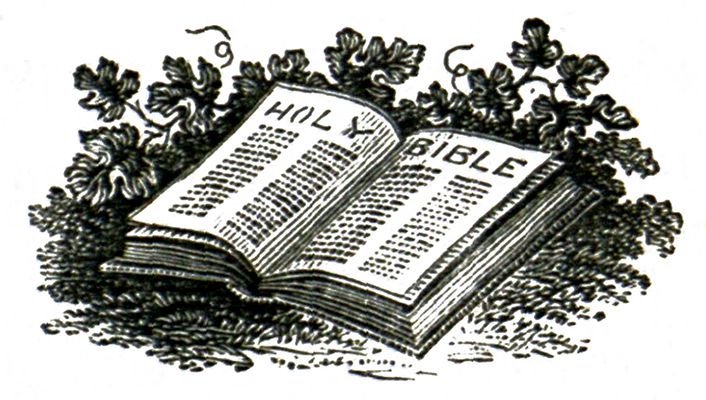
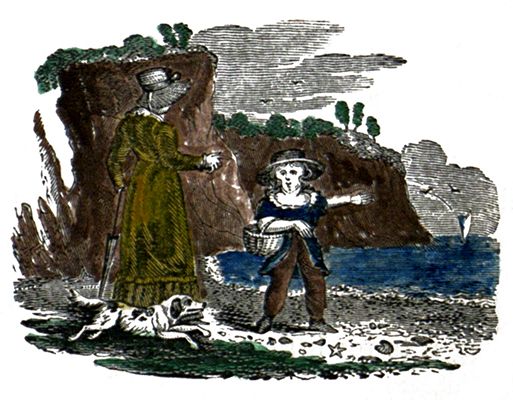
Sometimes Mrs. Pierce would walk out with little Orrin, and she always used to talk with him, so as to improve his mind. She would make him observe the works of God, and tell him of the wonders of Creation. Orrin was very fond of going to the sea-shore, and when he had been a good boy his mother would go there with him. He always took with him a basket to put his shells in, for there were many shells on the beach. His little dog, Dash, always went with him, and when Orrin threw a stick into the water, Dash would plunge in, and swim after it, and bring it to his little master.
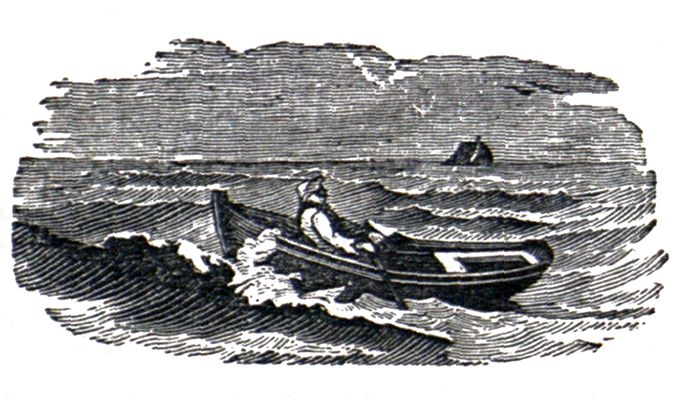
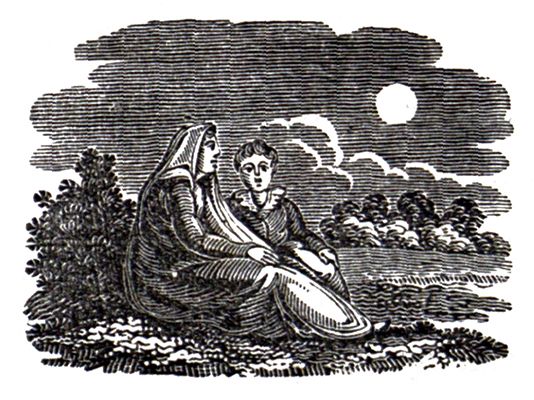
Often during the summer, when the evenings were mild and pleasant, she would walk in the fields with Orrin, and they would sit down to enjoy the beauty of the scene. The calm, full moon, shining above them, shed a soft light on all around. Sometimes a cloud would pass over it and hide for a moment its brightness, and they would watch for it as the cloud moved on, and it would suddenly burst upon their sight; on such occasions, Orrin used to repeat some passages of Scripture to his mother, giving thanks to God, who made the moon and stars to shine by night.

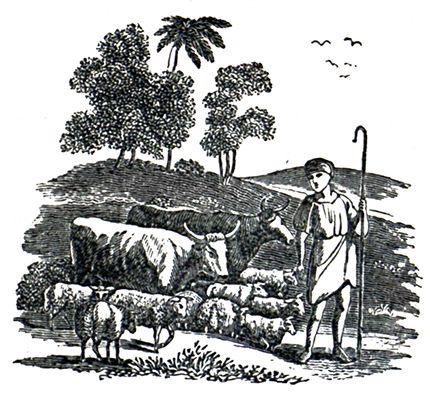
Orrin loved very much to see the different animals, that are for the use of man. He liked horses and cows and dogs very much, but best of all he liked the sheep and lambs. There was a field not far from his mother's cottage where a flock of sheep were often kept. He used to watch the shepherd taking care of the sheep, and when he noticed how readily they followed him, he thought of the words of Christ, "My sheep hear my voice, and I know them, and they follow me." He also remembered that this harmless animal was employed as a type of Christ, who is called "the Lamb of God, who taketh away the sin of the world."
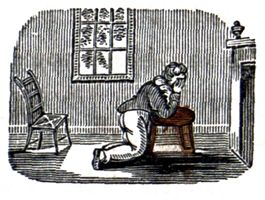
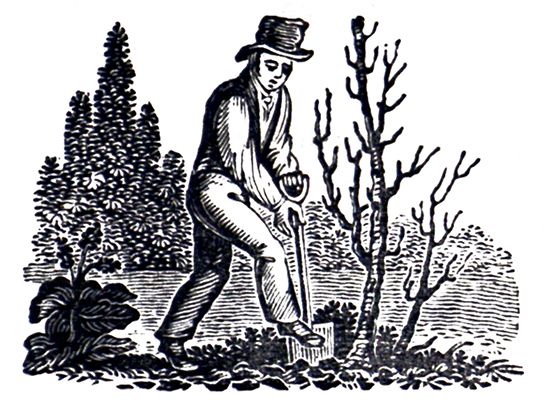
Mrs. Pierce gave her little son a place for a garden, which the gardener used to dig up for him. She gave him different seeds of plants and flowers. She bought him a shovel, a rake and a hoe, of a suitable size for a little boy. Here he used to amuse himself for hours. He had one tree in his garden which would not thrive, though he had bestowed much labour upon it, but finally he determined to remove it. Indeed the branches were many of them dead. He told his mother he was reminded of the passage in Luke xiii. 6, 9, for he had waited long for fruit, but found none, and he was going to remove the worthless tree.
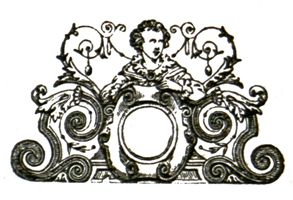
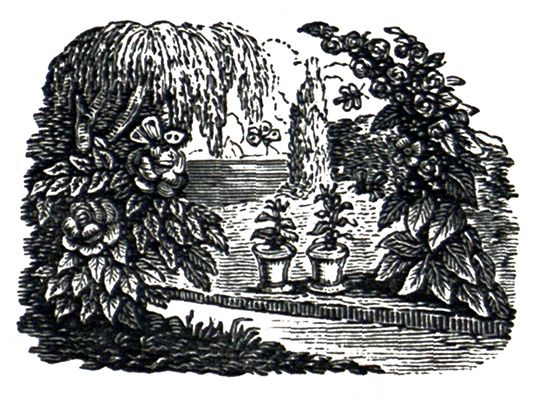
On a pleasant afternoon, it was very delightful to walk in Mrs. Pierce's garden. Orrin's garden spot was as neat and in quite as good order as his mother's. The roses were so fragrant, and the various colours of the numerous flowers so pleasing to the eye, that all admired who beheld them. The butterflies roamed from flower to flower undisturbed: the humming-birds and bees took their portion of the sweets, and pretty singing birds fluttered among the branches. Mrs. Pierce used often to point to the beautiful lilies, and say to Orrin, "Consider the lilies, how they grow, and remember the instruction they give."
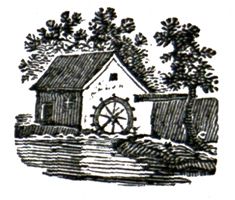
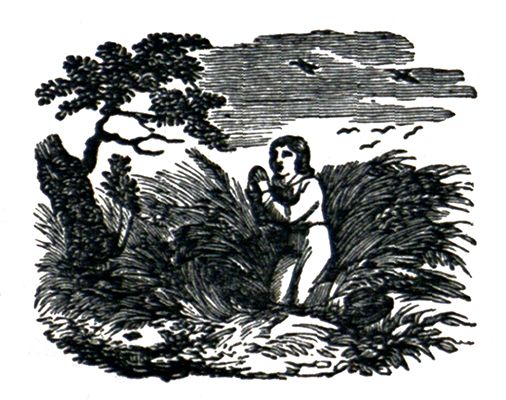
You may be sure Orrin was early taught to pray; and that he was careful never to forget or neglect this duty. He did not wait till after he was in bed, either, but kneeled down before he became sleepy, so that he might pray with the understanding. He used to pray for a new heart, so that he might love holiness and hate sin. He also prayed for the forgiveness of his sins. Sometimes he prayed when he was in the field or on his way to school, when he thought he should not be observed. He thanked God for all his mercies, but more than all for the gift of the Saviour; and when quite young, he could repeat many very pleasing verses about the love of Christ for this sinful world.
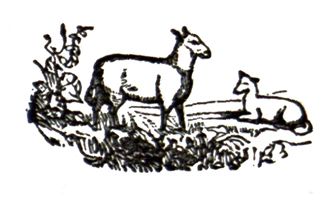
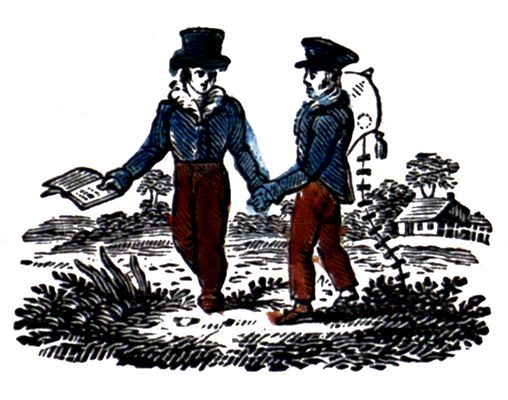
One day when Orrin was on his way to the Sabbath-school, he met a boy going across a field with a kite in his hand. He did not know the boy, but he knew he was about to commit sin, so he asked him if he would not leave his kite and go to the Sabbath-school. He opened his book and showed him where the lesson was, and told him that he would be much happier in learning to keep God's commandments, than all his kite-flying could make him. The boy thought so too, and was willing to take advice, so he hid his kite behind the fence, and went with Orrin. We should try to do good to all as we have opportunity.
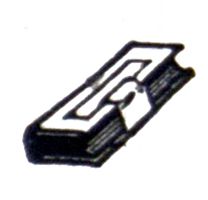
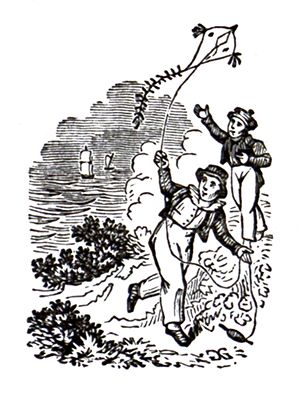
The next day he met the same boy flying his kite. He stopped as Orrin approached him, and said, "I thought yesterday when you asked me to go to the Sabbath-school that it was a pity to give up flying my kite, because there was such a good wind, but to-day the wind is just as good, and I have had a fine time with my kite." So he lost no pleasure, but gained much good. Orrin stayed a while and played with this boy, and told him he hoped to see him again at Sunday-school; and so he did, for he continued to attend regularly from that time.
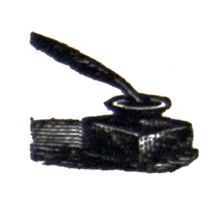
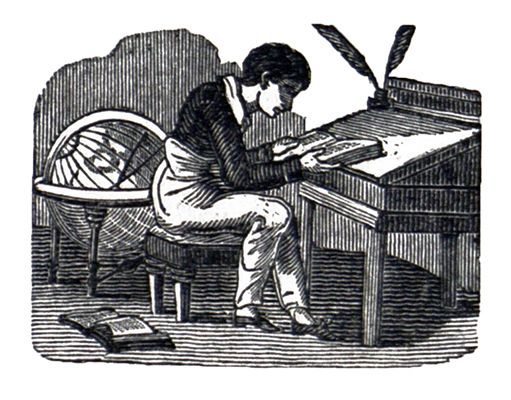
Orrin's mother was almost sorry when he was too old to be kept at home under her instruction. She felt afraid that when he began to be more from her watchful care he might become more like those boys whose company she had always directed him to avoid. He was very fond of study; and his teacher soon noticed him as a boy who would be an example to the school. He was always in his place when the bell rang for nine o'clock, and his lessons were well learned. His mother was much pleased with the accounts she received from his teacher, of his good conduct.
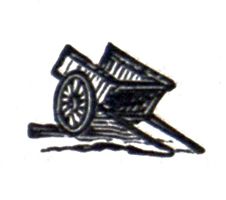
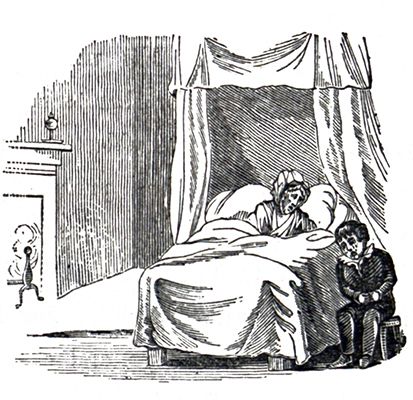
When Orrin was about fourteen years old, he met with the greatest affliction that could have been sent upon him. This was the death of his excellent mother. She was sick for a long time, and had a very good physician, but God did not see fit to restore her to health, and she was quite ready to submit to His will. Her only anxiety was for her son, and even this care she was able to commit to the Lord, who has promised to be a father to the fatherless. She talked much to Orrin, and told him that she had trained him up thus far, in the way he should go, and charged him not to depart from it.
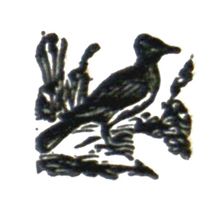
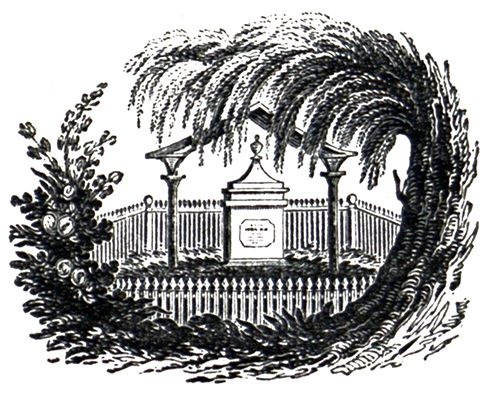
A great number of friends and neighbours followed Mrs. Pierce to the grave. She was greatly beloved by all who knew her, but none could mourn for her as her poor afflicted boy did. When he saw his mother laid in the grave, he felt as if he had not a friend on the earth. True, he had neither sister nor brother. His father died when he was an infant, and now his precious mother was taken away. But God could supply to him all that he had lost, and be to him more than all earthly friends, even one who would never leave him nor forsake him.
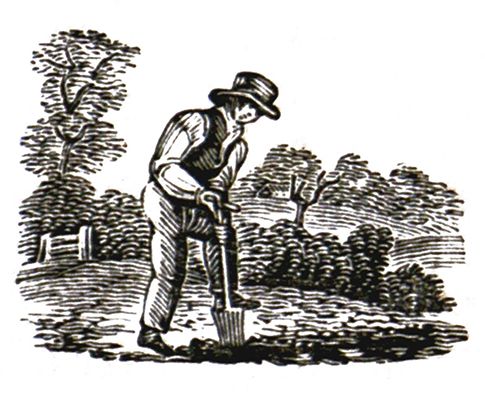
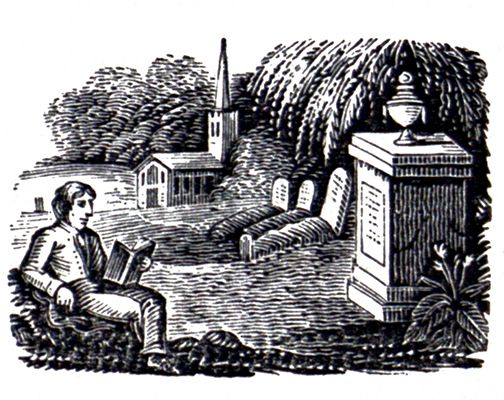
Day after day, Orrin went to the graveyard, to visit the tomb of his beloved parent. He used to take with him the Bible, which they had so often read together, and read those passages which she delighted in. He was much comforted by these words of the Lord Jesus Christ, "I am the resurrection and the life. He that believeth in me, though he were dead yet shall he live, and whosoever liveth and believeth in me shall never die. The hour is coming in the which all that are in their graves shall hear the voice of the Son of Man, and shall come forth; the followers of Christ to enter into heaven, and his enemies to be cast into hell."
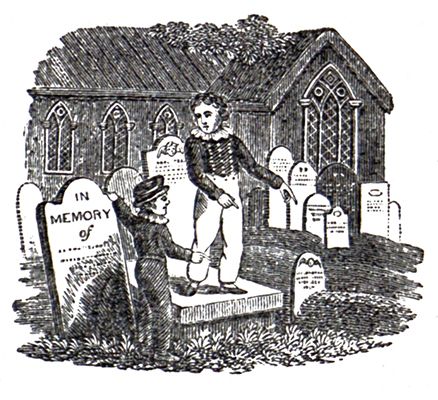

After his mother's death, Orrin went to live with a kind uncle, a brother of Mrs. Pierce, who lived a great distance off, so that Orrin went there in a ship. Then God raised up a friend for this orphan-boy. His uncle had a little daughter much younger than Orrin, whose name was Jane. As he never had a sister, it was very pleasant to have such a little companion as Jane. His aunt was very kind and affectionate to him, but no one was like his mother. Though he was very sad for a long time, he tried to overcome such feelings, and, by dutiful conduct, to show his kind uncle and aunt that he was grateful to them.
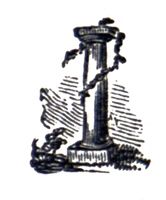
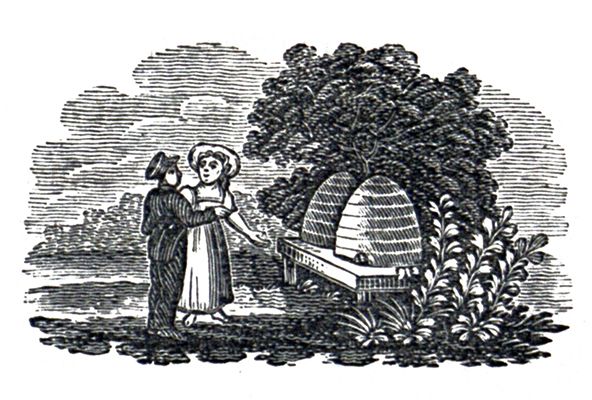
Jane had not received as much instruction as Orrin had, and he was very happy to tell her some of the things he had heard from his mother. One day, he and Jane were walking in the garden, and they stopped by the bee-hives to watch the bees go out to gather their stores, and return laden with sweets.
Orrin told Jane many curious facts about bees, which instructed her very much. He told her that they were always busy, and would not allow an idler to live in the hive. Orrin and Jane also attended Sunday-school together.
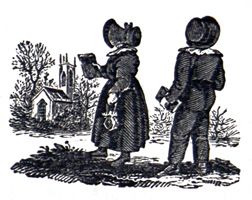
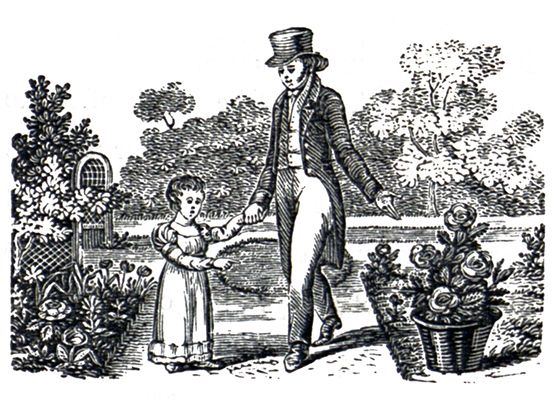
Jane used to walk and play in her father's garden, but she did not have one of her own. Her father used to tell her she might look at the flowers, but that she must not pick them, as she would injure them. But when Orrin came he gave Jane a garden by herself in which her cousin worked, and they both kept it in order, and it was a great pleasure to her to pick flowers whenever she liked. She used often to gather a pretty nosegay for her mother. Orrin used to say when he looked at her flowers, why even Solomon in all his glory was not arrayed like one of these.
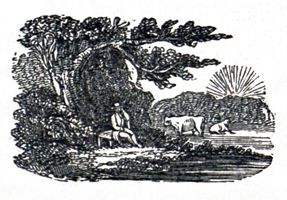
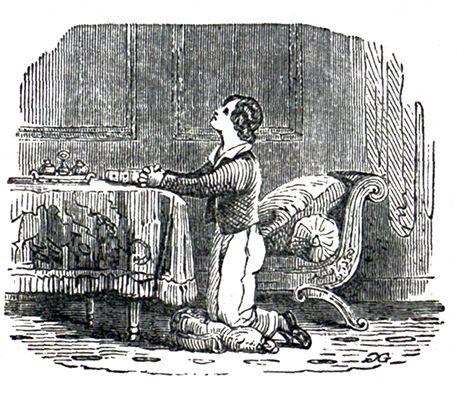
Many boys who have been taught by pious mothers to pray to God in childhood, when they become older forsake the law of their mother. They begin to think it is well enough for children, but not needful for men; but this was not the case with Orrin. He remembered what Solomon says of a mother's counsel: "When thou goest it shall lead thee; when thou sleepest it shall keep thee; and when thou wakest it shall talk to thee." Orrin read his Bible daily, and continued to pray to the God of his mother, and he kept in mind her instructions and always tried to act as he supposed his mother would wish.
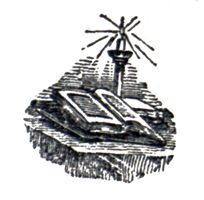
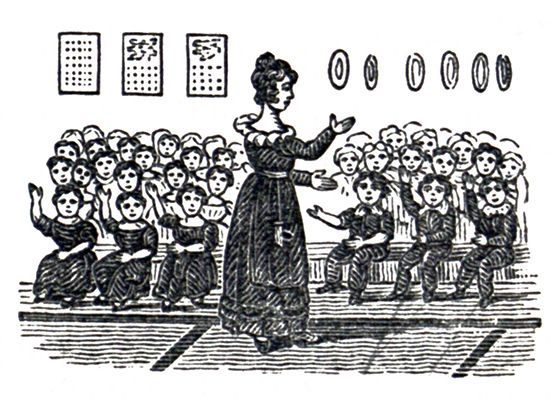
From the time he was old enough to behave properly, Orrin went to Sunday-school. He was in a room where only the little scholars attended, and they were taught by a very kind lady. She taught them from Scripture-cards, and they could say and sing many beautiful little hymns. He could also answer all the questions in a simple catechism. When he could read well, he went into the larger school, and was put into a class with some boys larger than himself. Some of them did not behave as well as Orrin did.
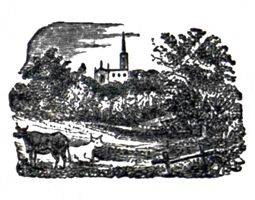
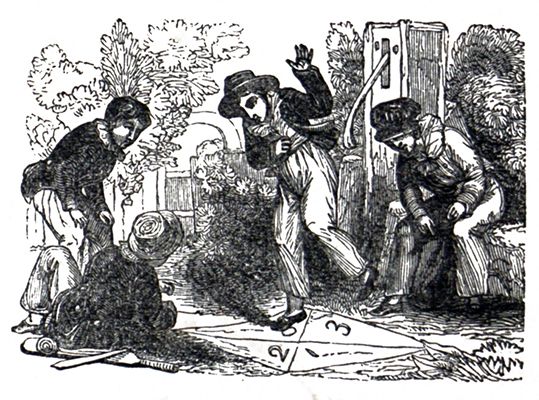
Orrin's mother loved to see her little boy play at proper times. She did not always require him to be studying, or reading books. When he went to play she was careful that his mates should be good boys who did not take the name of God in vain, or use coarse and vulgar language, or quarrel and fight. She told him always to treat his mates kindly, to be just and fair in his sports, and at all times to "do unto others as he would wish others to do unto him." She reminded him that "even a child is known by his ways," and that "cheating play never prospers."
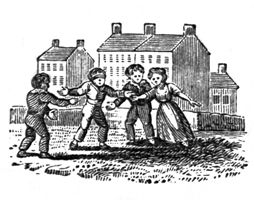
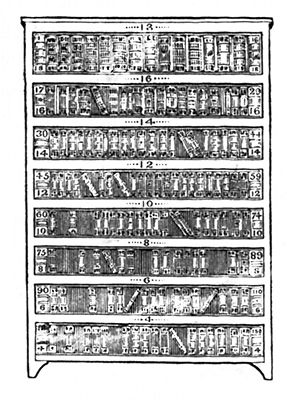
Wherever there is a library of useful books, a young person can gain a store of knowledge. Orrin was very fond of reading, and his uncle gave him the liberty of reading in his study, whenever he wished to do so. There Orrin spent many hours, gaining useful knowledge; and as he had a very good memory, he found, many years after, much use for the instruction he received in this way. Solomon says, "Get wisdom, get understanding, take fast hold of instruction, let her not go, keep her, for she is thy life."
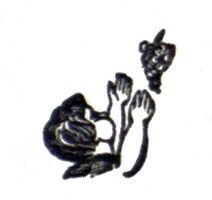
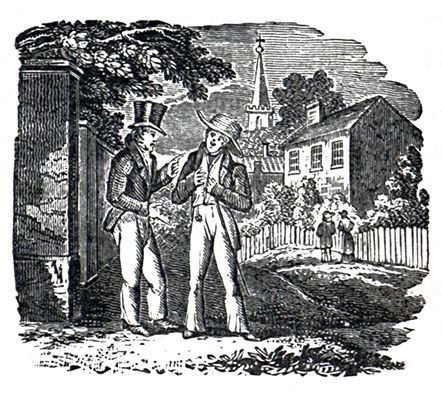
Those who have read the history of this good boy, will like to hear something of him as a man. He became not only a respectable, but a useful and pious man. He was a kind friend; he warned and reproved those he found doing wrong. When a man, he was as fearless in reproving sin as he was when a boy. If he saw a young man profaning the Sabbath day, he kindly warned him of his evil way and would invite him to go with him to the house of God. His example was, also, a silent teacher of all.
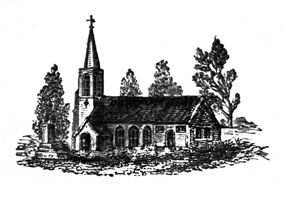
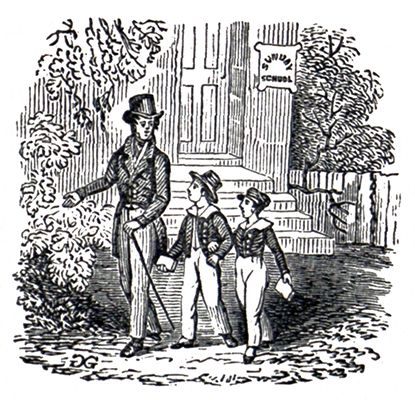
You will not be surprised to hear that Orrin became a Sunday-school teacher, nor that he knew how to teach in a way to profit his scholars. They all loved him very much, and never were absent from school unless they were sick. Here he is, just returning from Sunday-school. Two of his scholars are with him; they have their library-books in their hands. How orderly they walk by his side, talking with him about the lesson. It is a great blessing to have such a teacher.
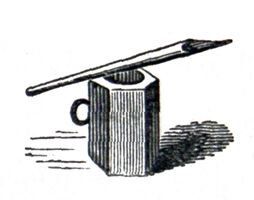
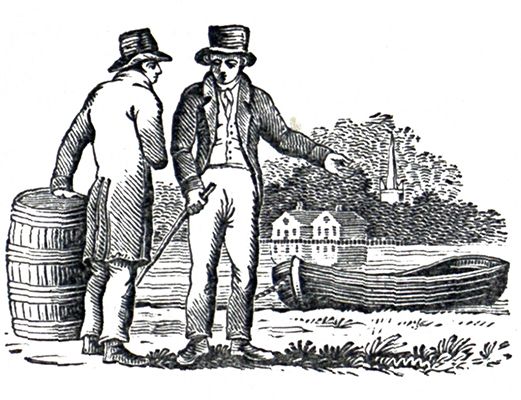
This picture may remind us of Orrin, for we may think of him as walking by the water-side with a friend. Perhaps he is speaking of the occupation of Christ's disciples, when he called them to preach the gospel. They left their ships and followed him. He is pointing to the church amid the trees, and says "I too would preach the gospel." No doubt he would make a useful minister of the gospel, for from his youth he has known the Scriptures, which are able to make him wise unto salvation. He may be thinking of Christ's words, Go ye unto all the world, and preach the gospel to every creature.
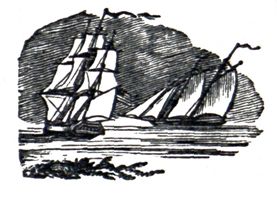
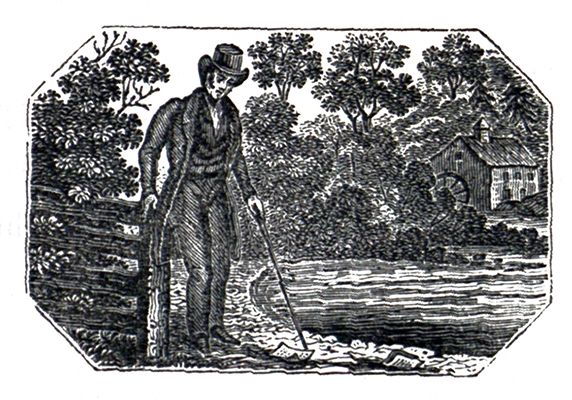
After much thought upon the subject, and having taken the advice of friends, Orrin determined to be a missionary. He went to bid farewell to the scenes of his childhood. He visited the cottage where he was born. He stood by the sea-side, where he had gathered shells, and listened to his mother's instructions; he walked in the fields where he had seen the lambs. And as he stood thinking over his days of childhood tears fell from his eyes, but they were tears of gratitude to God, for having given him a mother who taught him to love the service of God.
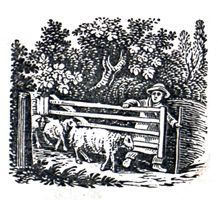
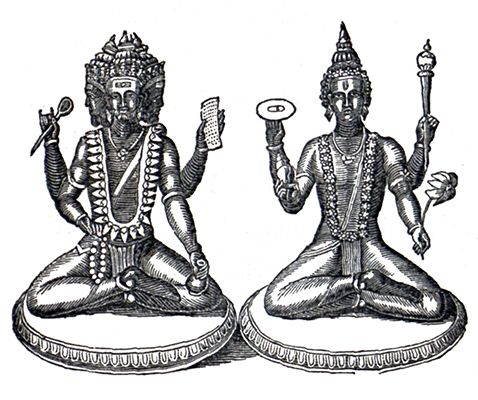
He at length goes to make known the way of salvation to those who never heard of a Saviour; to poor ignorant pagans, who worship idols, the work of their own hands. Many, like him, have gone to tell the perishing heathen of Jesus, who is the way, the truth, and the life. May all such reap a rich reward, and turn many to righteousness. May God incline the heathen to cast away their senseless idols, which have eyes that see not, and ears that hear not, and enter upon the service of Him who is worthy of all their love.
